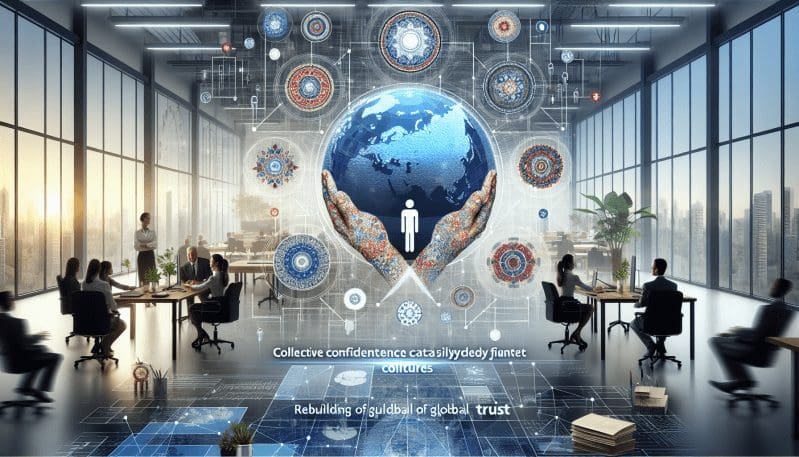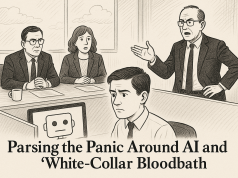In anticipation of the Davos 2024 theme, ‘Rebuilding Trust,’ organizations worldwide are recognizing their critical part in this narrative. Trust – a seemingly simple cornerstone of social and economic interaction, has frayed edges in today’s global fabric. Workplaces, where diverse individuals spend a significant amount of their time, are not merely profit-driven entities; they are microcosms of society that can foster trust and extend it outward, influencing the broader dynamics of trust on a global scale.
As an experienced Human Resources Professional, I’ve observed firsthand the transformative power of trust in the workplace. Trust within a company acts like a catalyst, setting off a domino effect that touches every aspect of business operations and beyond. It’s the undercurrent that enables cooperation, drives open communication, and fortifies the bridge connecting employee engagement to customer loyalty.
### Case Studies of Trustworthy Companies
Consider the case studies of companies like Salesforce or Patagonia, which have been lauded for their commitment to transparency, inclusivity, and integrity. Salesforce’s 1-1-1 model of philanthropy and their outspoken stance on social issues have built an internal culture that resonates with trust and has earned them a high level of respect, both within their walls and in the business community at large. Patagonia’s dedication to environmental activism and ethical manufacturing has not only won them a loyal customer base but has also solidified their reputation as a trustworthy and principled company.
These companies prove that when trust is baked into the organizational DNA, it goes beyond goodwill – it becomes a competitive advantage. By sharing these success stories, other organizations can chart a course toward nurturing trust as a core business strategy.
### Trust-Building and Employee Well-being
Research consistently shows that trust has a profound impact on employee well-being and productivity. A trusted worker is a motivated worker, one who feels a part of something larger than themselves. This feeling of belonging and significance can lead to increased creativity, greater commitment, and improved performance. When employees trust their leaders and the direction of the company, they are more likely to champion the organization’s mission and act as ambassadors on the world stage.
### Leadership’s Role in Fostering Trust
Leaders and HR professionals are the stewards of trust in the workplace. It’s through their actions – such as transparent communication, fair decision-making, and ethical leadership – that trust is either built or eroded. But how can these stewards of trust lead by example? Fostering an environment where employees feel secure in taking risks, voicing their opinions, and knowing they are valued is a good starting point. Beyond that, leaders can encourage continuous learning, offer support through mentorship, and show genuine care for employees’ personal and professional growth.
### Aligning with Global Aspirations
The efforts to build trust within the confines of an organization have ripples that touch every shore. As workplaces strive to be more inclusive, ethical, and transparent, these qualities are reflected in the global marketplace and political landscape. Trustworthy businesses can influence economies, affect trade relations, and contribute positively to international cooperation. As we look to Davos 2024, businesses have the opportunity to align their trust-building efforts with the broader aim of repairing global trust.
Workplaces as catalysts of collective confidence are not an idealistic notion; they are a realistic and necessary approach to address the trust deficit that plagues our institutions and societies. As we move forward, let us as professionals embrace the role of building trust one interaction, one decision, one policy at a time – understanding that it is these collective efforts that will fortify the foundations of global trust.


























